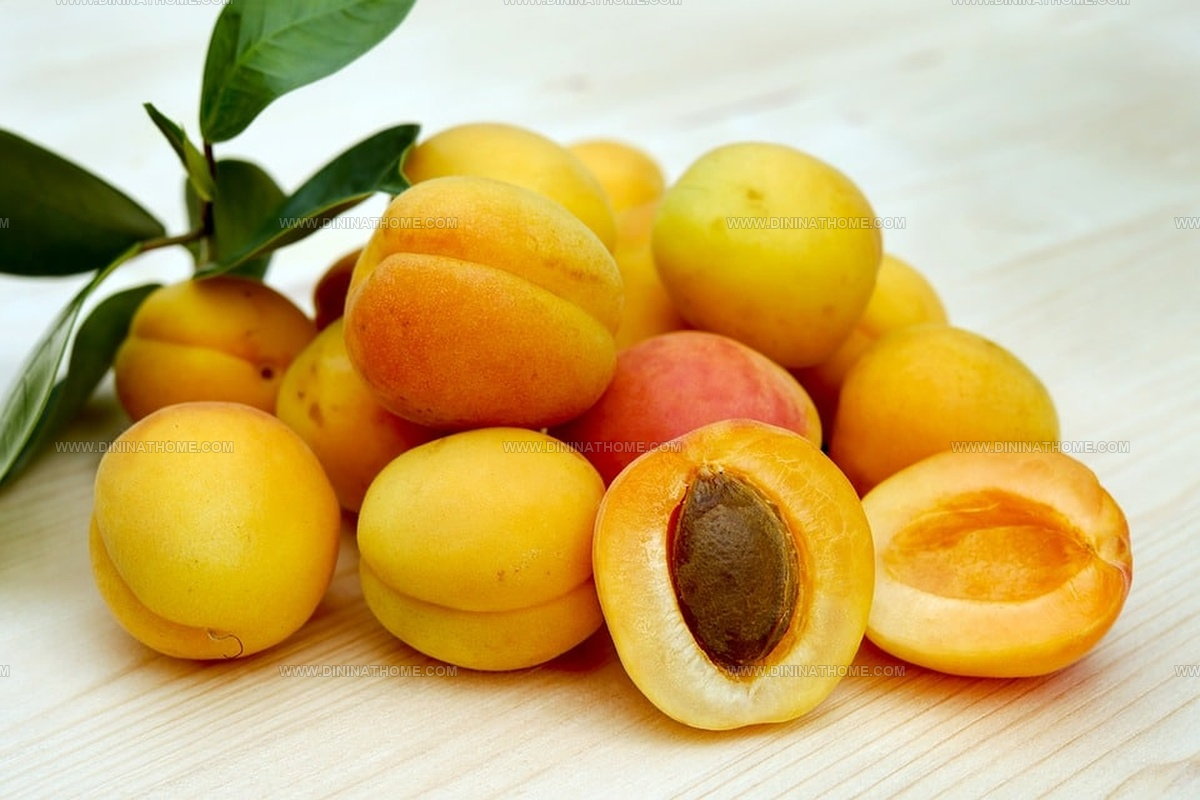What Do Apricots Taste Like? Sunshine in Your Mouth!
Apricots, those delicate golden fruits, spark curiosity among food enthusiasts and casual snackers alike.
Their unique profile intrigues many people who have never experienced their distinctive flavor.
Some fruits remain mysterious until you actually bite into them, and apricots certainly fall into that category.
Sweet yet slightly tangy, these small stone fruits carry complex flavor notes that surprise most palates.
Nutritionists praise apricots for their impressive health benefits, making them more than just a tasty treat.
Regional variations and ripeness significantly impact their overall taste experience, creating subtle differences that keep apricot lovers constantly engaged.
Understanding the nuanced characteristics of these remarkable fruits can transform your culinary perspective and appreciation for unexpected flavor combinations.
What Are Apricots?
Apricot trees grow in warm regions around world, especially near Mediterranean lands.
Small golden fruits belong to rose plant group with close relatives like peaches, almonds, plums, and cherries.
People enjoy eating these sweet fruits in many different ways.
Folks can munch on fresh apricots right from tree branches or cook them into delicious recipes.
Preservation methods like canning and drying help store these tasty treats for longer periods.
Cooks often use apricots to make sweet spreads like jam and mix them into special alcoholic drinks.
Nutritional benefits make apricots a smart snack choice.
Natural sugar levels give great energy boost while vitamin A supports healthy body functions.
Dried versions of these small fruits pack extra nutrition punch with rich iron content that supports strong health.
Apricot Flavor Guide
First bites of apricots reveal a sour and bitter taste. Apricots come with a firm yet soft flesh.
Compared to peaches and apples, they are less tart but share a similar texture. Fruits like apricots are denser and hold up well in rich recipes.
Nutritionists recommend apricots as one of five fruits for daily consumption. People unsure about fruit choices might sample these tasty treats.
Apricot flavors can seem sweet but actually carry a tart edge. Individual taste perceptions vary, though most find them sweet with a tangy hint.
Ripe apricots feel firm and spongy to touch. Biting into them feels different from crunchy apples - they are softer and easier to eat.
Unripe versions can taste slightly bitter. Different apricot types bring unique flavor profiles.
Compared to peaches, apricots have subtle sweetness but distinct characteristics. Size similarities end where taste differences begin.
Both stone fruits share sweet and tart notes, but apricots lean more towards bitter flavors. Looks can be deceiving when comparing these similar-looking fruits.
Dried vs. Fresh Apricots: Taste and Uses
Apricots can be enjoyed both fresh and dried, but each type has its own unique taste and best uses. Whether you choose fresh or dried, apricots are a tasty and healthy addition to many recipes, each bringing its own style and sweetness.
Fresh Apricots
These are juicy, soft, and slightly tart with a light sweetness.
Their flavor is bright and delicate, making them perfect for snacking, fruit salads, or adding to yogurt and cereals.
Fresh apricots can also be used in baking, jams, and sauces for a fresh, sunny flavor.
Dried Apricots
Dried apricots are chewy, much sweeter, and more intense in flavor because the drying process concentrates their natural sugars.
They are easy to store, don’t spoil quickly, and are great for quick snacks, trail mixes, or energy bites.
Cooks often use dried apricots in baking, stews, tagines, or to add a sweet touch to savory dishes.
How Do Apricots Look?
Apricots reach their peak when they turn a rich orange color. Different types of apricots exist with unique characteristics.
Farmers name these varieties based on their specific fruit traits and growing regions. Color variations appear across different apricot types, though most share a standard orange shade.
Skin texture plays a key role in taste - smooth or fuzzy apricots tend to have sweeter flavors.
Ripe apricots feel firm yet soft, matching a texture between peaches and firmer fruits.
People enjoy these fruits when they show a deep orange color with subtle loft. Enjoying apricots works best within days of picking from the tree.
First-time tasters often find these small fruits incredibly delicious. Anyone seeking a fresh and sweet snack should sample these wonderful little fruits.
Nutrients in Apricots
Summer brings juicy apricots in different shades and shapes. Small fruits carry big taste and health benefits.
Yellow-orange apricots range from sugary to slightly tangy based on their type. Packed with helpful nutrients, these tiny fruits offer multiple health advantages.
Health Benefits of Eating Apricots
Apricots are more than just a summer treat.
Explore the wide-ranging health benefits of eating apricots regularly.
Relieves Constipation
Apricots work wonders for digestive health thanks to their high fiber content.
Helping those struggling with constipation becomes easier with these small orange fruits.
Fiber acts as a natural helper that adds weight to waste materials, making them smoother to move through intestinal passages.
Our bodies benefit from this process as waste can pass more comfortably and completely.
Digestive systems respond well to fiber by boosting production of important fluids that break down food particles.
These special fluids also support better nutrient absorption, ensuring our bodies can process meals more efficiently.
Individuals who face regular digestive challenges might find relief by adding apricots to their daily diet.
Small changes like including these fruits can significantly improve overall gut health and comfort.
Makes Bones Stronger
Apricots pack important minerals that support strong bones.
These small fruits offer calcium, phosphorus, manganese, iron, and copper.
Each mineral plays a key role in keeping bones healthy.
Consuming apricots might help build bone strength and shield you from bone-related health problems later in life.
Eating these fruits can support your body's skeletal system and reduce risks connected to weakening bones as you age.
Improves Heart Health
Munching on apricots helps protect heart wellness and stop serious medical issues.
Packed with key nutrients like vitamin C, potassium, and dietary fiber, these small fruits support strong cardiovascular health.
Vitamin C shields heart cells from harmful free radicals that can cause damage.
Potassium works magic by relaxing blood vessel walls and bringing down blood pressure.
Dietary fiber does its job by clearing out excess cholesterol from vessel walls, which reduces stress on the heart.
These golden fruits carry special qualities that make them excellent for keeping hearts strong and functioning well.
Increases Metabolism
Minerals like potassium and sodium play key roles in managing water levels inside our body.
Apricots contain plenty of potassium that helps balance fluid flow and supports moving energy to different muscles and organs.
Keeping electrolyte levels steady means you can boost energy, stop muscle cramps, and help blood move smoothly through your system.
Helps Ear Pain
Apricot oil helps soothe ear pain through its healing qualities.
Carefully placing several drops inside the painful ear might calm discomfort quickly.
Medical researchers suggest that natural compounds within apricot oil work to reduce inflammation and support ear health.
Lowers Fevers
Apricot juice offers healing support for those battling fever.
Packed with important nutrients, this drink supplies the body with key vitamins, minerals, calories, and hydration while helping clean out different organs.
Steamed apricots work as another method for managing fever symptoms.
Calming effects of this fruit might help balance body temperature during illness.
Apricots can reduce swelling in various body areas, which supports individuals suffering from conditions like arthritis or gout.
Wellness experts recognize these special properties that make apricots a natural health booster.
Apricot Skin Is Good For You
Apricot oil works wonders for skin health. This lightweight oil soaks right into skin without leaving a greasy feel.
Skin troubles like eczema, itching, and scabies can find relief through apricot oil. Powerful antioxidant chemicals inside apricots create these healing effects.
Such antioxidants shield skin from harmful free radicals that typically cause skin breakdown and early signs of aging. Rich vitamin A content (about 60 percent of daily needs per serving) connects directly to skin wellness.
Skin benefits include:
Can Help With Anemia
Apricots help create hemoglobin because they carry iron and copper.
These key ingredients support fighting anemia, a condition caused by low iron levels.
Such a shortage makes you feel weak and tired with dizzy spells and digestive issues.
When red blood cells can't move oxygen properly, body systems start breaking down.
Copper works alongside iron to build healthy red blood cells.
Minerals packed inside apricots make them a powerful way to keep your body running smoothly and support overall health.
Stops Some Cancers
Apricot seeds might help fight cancer.
Cancer protection comes from apricots' carotenoids and special antioxidant qualities.
Dangerous molecules called free radicals emerge during normal cell processes and can harm healthy cells by changing their DNA structure.
These harmful molecules can trigger dangerous cell changes that lead to serious health problems.
Antioxidants work like shields against diseases such as cancer, heart troubles, brain conditions like Alzheimer's, and skin aging by stopping toxic molecules from causing damage.
Medical research suggests apricots connect directly to reduced cancer risks.
May Help Asthma
Apricot oil might help people dealing with asthma by soothing breathing problems.
Its special oils work to clear airways and boost overall lung health.
Scientists believe this oil can lower stress on respiratory systems, which means fewer asthma attacks could happen for those struggling with breathing challenges.
How to Store Apricots
Storing apricots requires careful attention to keep them fresh and tasty.
Overripe apricots can stay in the refrigerator for two weeks.
Frozen apricots last up to a year when stored properly.
Sliced fruits need thawing before storage.
Completely dry fruits can remain in the refrigerator for 6 months.
Fruits become soft and ripe within 2-3 days.
People can keep apricots outside for five days and inside the fridge for a week.
Fruit trays work well for storage.
Placing fruits carefully matters more than simply dumping them into containers.
Checking ripeness before refrigeration is crucial since cold stops fruit from developing.
Poor storage causes apricots to lose moisture quickly.
Fruits left out too long become dry and lose their flavor.
Apricots darken and stiffen when sitting at room temperature.
Sealed bags help preserve them for about a month.
Checking ripeness involves gently pinching the fruit.
Look for skin that shows fingermarks without dripping.
Watery apricots still make a good choice for eating.


James Walker
Lead Recipe Developer & Culinary Educator
Expertise
Southern Cuisine & Farm-to-Table Cooking, Recipe Development & Testing, Culinary Education & Instruction
Education
School: Auguste Escoffier School of Culinary Arts
Program: Diploma in Culinary Arts and Operations
Focus: Comprehensive training in classical and modern culinary techniques, kitchen operations, and farm-to-table practices.
James didn’t learn cooking from a TV show, he learned it from busy kitchens, family gatherings, and long afternoons spent testing recipes the hard way.
After training at the Auguste Escoffier School of Culinary Arts, he brought his love for real, down-to-earth food to every dish he makes.
At Dining At Home, James loves building recipes that feel familiar but still have something special, like adding a twist to a classic or making a slow Sunday dinner feel brand new.
When he’s not in the kitchen, you’ll probably find him swapping garden tips at the farmers’ market or teaching his daughter how to flip pancakes without a mess (almost).